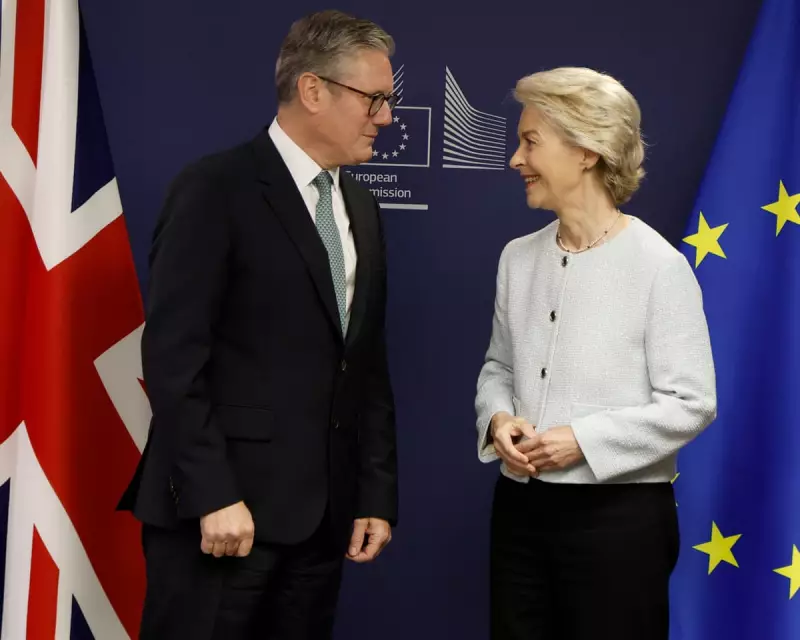
Prime Minister Keir Starmer's ambitious plan to reset Britain's relationship with the European Union has been dealt a severe blow, after high-stakes negotiations for the UK to join the EU's flagship defence initiative dramatically collapsed.
A Multi-Billion Euro Stumbling Block
The UK had been actively pushing to become part of the EU's €150 billion Security Action for Europe (Safe) fund, a low-interest loan scheme forming a crucial part of the bloc's comprehensive drive to boost defence spending by €800 billion. This massive rearmament effort comes as a direct response to the growing threat from Russia and cooling relations between Donald Trump's United States and the European Union.
Access to this scheme would have provided a significant advantage for the British defence industry, enabling UK firms to secure a more substantial role in European defence projects. However, the path was never entirely clear. As recently as September, France had proposed implementing a ceiling on the value of military components that could be sourced from the UK for any fund-backed projects.
From Quiet Diplomacy to Public Collapse
For months, it was expected that the UK and EU would finalise a technical agreement, with London prepared to pay an administrative fee. The optimism was bolstered by the EU-UK security and defence partnership signed in May by Keir Starmer and European Commission President Ursula von der Leyen. This pact was essential, as without it, UK companies would be limited to supplying no more than 35% of the value of components for any project funded by Safe.
As recently as last week, the Prime Minister expressed confidence that a deal could be reached through quiet, behind-the-scenes diplomacy. While travelling to the G20 summit in South Africa, he told reporters that negotiations were proceeding in the "usual way" and that he hoped to find an "acceptable solution."
This hopeful tone quickly evaporated. The negotiations hit rocky ground when EU officials suggested an entry fee of up to €6 billion, a figure far exceeding the administrative contribution the UK government had envisaged. Veteran former diplomat Peter Ricketts, who chairs the European affairs committee in the House of Lords, described a rumoured €6.5 billion fee as "so off the scale that it suggests some EU members don't want the UK in the scheme."
Aftermath and the Road Ahead for UK Defence
With the two sides remaining "far apart" on the financial terms and the 30 November deadline looming, the talks ultimately fell through. The UK's defence secretary, John Healey, had signalled the government's willingness to walk away, stating that Britain was not prepared to sign up at "any price."
In the aftermath, the Minister for EU Relations, Nick Thomas-Symonds, struck a diplomatic but disappointed tone. He confirmed it was "disappointing" that an agreement could not be reached but sought to downplay the overall impact. He insisted that the UK defence industry will still be able to participate in Safe-funded projects, albeit on less favourable "third-country terms."
Thomas-Symonds reaffirmed the government's position, stating, "Negotiations were carried out in good faith, but our position was always clear: we will only sign agreements that are in the national interest and provide value for money." He pointed to other areas of continued strong progress, including the historic UK-EU May agreement, and emphasised the UK's leading role in European security, from supporting Ukraine to strengthening alliances across the continent.





